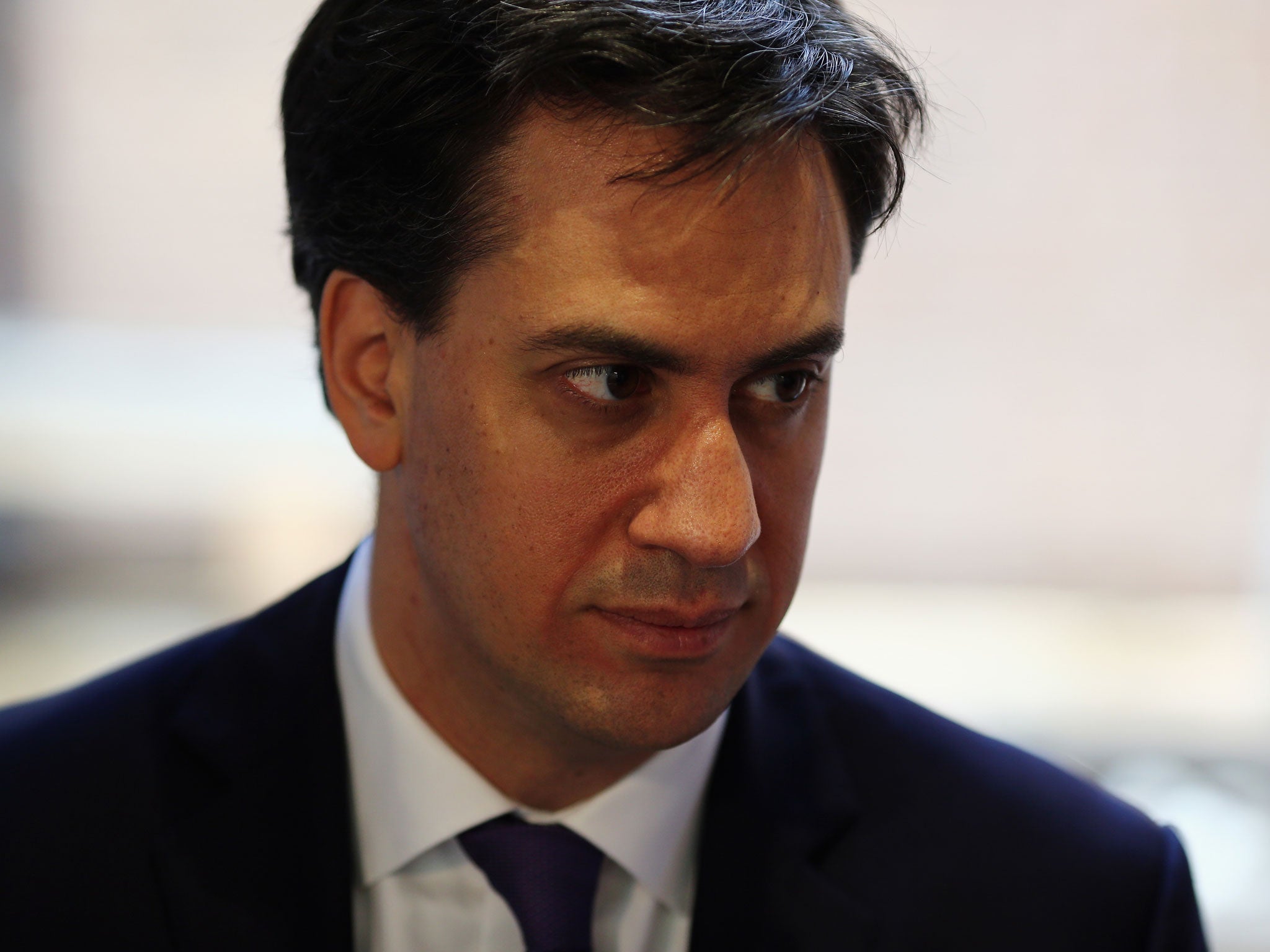Tories deny seeking Big Six energy price freeze
Downing Street is on the back foot over Ed Miliband's energy price freeze policy

Your support helps us to tell the story
From reproductive rights to climate change to Big Tech, The Independent is on the ground when the story is developing. Whether it's investigating the financials of Elon Musk's pro-Trump PAC or producing our latest documentary, 'The A Word', which shines a light on the American women fighting for reproductive rights, we know how important it is to parse out the facts from the messaging.
At such a critical moment in US history, we need reporters on the ground. Your donation allows us to keep sending journalists to speak to both sides of the story.
The Independent is trusted by Americans across the entire political spectrum. And unlike many other quality news outlets, we choose not to lock Americans out of our reporting and analysis with paywalls. We believe quality journalism should be available to everyone, paid for by those who can afford it.
Your support makes all the difference.Labour claimed the Government was in “complete disarray” after energy companies suggested ministers are trying to stop them raising their charges while condemning the price freeze proposed by Ed Miliband.
Downing Street and the Treasury denied the claim but it threw the Government on to the defensive as it finalised a package to cut gas and electricity bills to be announced in George Osborne’s autumn statement on Thursday.
Ministers hope the reduction will be worth about £50 a year. But industry sources claimed that, in private talks with the “big six” energy firms, the Government sought assurances that they would not wipe out the benefit by raising their charges. Unless there was an unexpected rise in wholesale energy prices, the sources said, ministers wanted to see charges pegged until mid-2015 – after the general election in May that year. That would mean a freeze of about 18 months, very similar to the 20-month freeze offered by Mr Miliband, which the Government has dismissed as a “con.”
The Government blamed the embarrassing setback on a “misunderstanding”. They said the firms were being asked about the impact of switching some green and social levies from energy bills.
David Cameron said: “I want to help households and families by giving getting sustainably low energy prices. The only way you can do that is by increasing competition and rolling back the costs of some of the levies on people’s bills. I said that’s what we were going to do. That is what we’re going to do, and I think that’s a very positive step forward.”
He insisted: "That’s worlds away from making a vague promise on something you might do in 20 months’ time, with no idea about how you’re going to do it. That’s a con. What we’re dealing with is real policy that can make a real difference."
But Labour claimed the Government was a “shambles” because it had no defining purpose other than being in power. Mr Miliband said: “What we now know is that while David Cameron has in public been opposing an energy price freeze, in private he has been pleading with the energy companies to get him off the hook.
"This is a weak and flailing Prime Minister. What Britain needs is Labour's strong, credible plan that we're publishing today to freeze energy prices until 2017 and reform a broken energy market so it properly works for business and families."
Mr Osborne may reduce bills by introducing the Energy Companies Obligation (ECO) scheme, which provides free insulation to low income households, over four years rather than two. The warm homes discount, which cuts annual energy bills by £135 for pensioners and vulnerable groups, is likely to be funded from general taxation. He may also bring down the cost of transmitting energy.
Angela Knight, chief executive of Energy UK which represents the “big six”, said the firms only controlled about 20 per cent of the bills consumers face, with the rest down to wholesale costs and levies.
Join our commenting forum
Join thought-provoking conversations, follow other Independent readers and see their replies
Comments